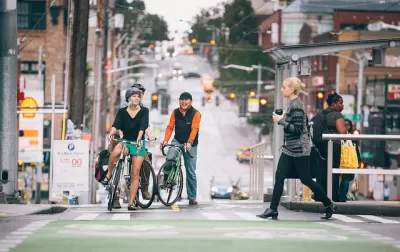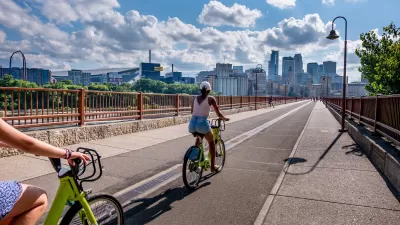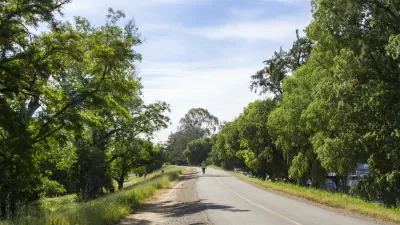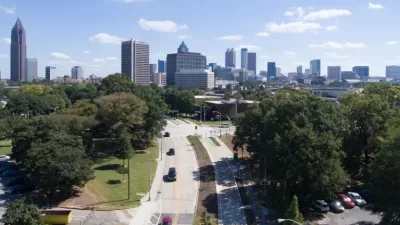A national philanthropic program designed to help cities produce more bike infrastructure has been a resounding success, according to recent analysis.

A team of researchers—Wilton Olver, Yonah Freemark and Yipeng Su—at the Urban Institute published findings of an examination of the Final Mile Program, launched in 2018 with philanthropic funding to jump-start municipal bike infrastructure improvements. According to the source article, the program "supported a combination of advocacy, communications, and engineering support in Austin, Denver, New Orleans, Pittsburgh, and Providence."
According to the research, cities involved in the program built more, higher quality bike infrastructure than other cities. "By the end of 2021, all Final Mile cities except New Orleans reached the ambitious cycling infrastructure mileage goals set by local officials: Austin and Denver completed at least 100 miles of improved bikeways during the program, significant expansions in investment compared with previous years," according to the article.
The research team conducted interviews in each funded community to discover the keys to the program's success. "Three explanations stand out: local government leaders committed to an ambitious, public mileage goal; they were continuously held accountable for achieving that goal, thanks to the active involvement of nonprofits and media campaigns; and they received new technical assistance for engineering," according to the article.
The article opens with the suggestion that the program might reveal general conclusions about the ability of U.S. cities to get more of their residents to ride bikes instead of driving everywhere, but the connection between infrastructure expansion and mode share increases isn't made in the article. Evidence from New Zealand, published in 2014, suggest that robust bike infrastructure contributes to higher bike mode share.
FULL STORY: How Can Cities Rapidly Expand Access to Cycling Infrastructure?

Planetizen Federal Action Tracker
A weekly monitor of how Trump’s orders and actions are impacting planners and planning in America.

San Francisco's School District Spent $105M To Build Affordable Housing for Teachers — And That's Just the Beginning
SFUSD joins a growing list of school districts using their land holdings to address housing affordability challenges faced by their own employees.

The Tiny, Adorable $7,000 Car Turning Japan Onto EVs
The single seat Mibot charges from a regular plug as quickly as an iPad, and is about half the price of an average EV.

Seattle's Plan for Adopting Driverless Cars
Equity, safety, accessibility and affordability are front of mind as the city prepares for robotaxis and other autonomous vehicles.

As Trump Phases Out FEMA, Is It Time to Flee the Floodplains?
With less federal funding available for disaster relief efforts, the need to relocate at-risk communities is more urgent than ever.

With Protected Lanes, 460% More People Commute by Bike
For those needing more ammo, more data proving what we already knew is here.
Urban Design for Planners 1: Software Tools
This six-course series explores essential urban design concepts using open source software and equips planners with the tools they need to participate fully in the urban design process.
Planning for Universal Design
Learn the tools for implementing Universal Design in planning regulations.
Smith Gee Studio
City of Charlotte
City of Camden Redevelopment Agency
City of Astoria
Transportation Research & Education Center (TREC) at Portland State University
US High Speed Rail Association
City of Camden Redevelopment Agency
Municipality of Princeton (NJ)





























